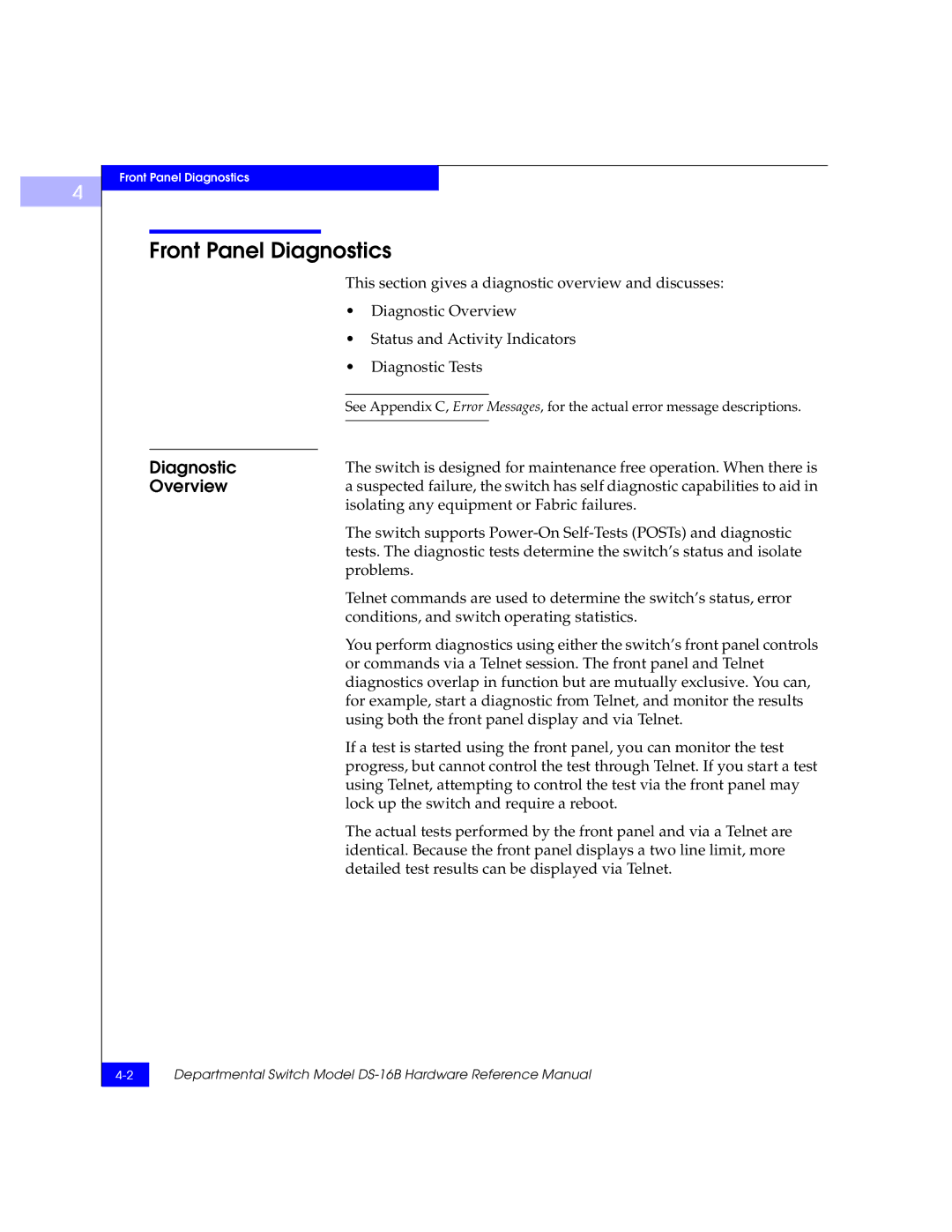
Front Panel Diagnostics
Front Panel Diagnostics
|
| This section gives a diagnostic overview and discusses: | ||
|
| • | Diagnostic Overview | |
|
| • Status and Activity Indicators | ||
|
| • | Diagnostic Tests | |
|
|
|
| |
|
| See Appendix C, Error Messages, for the actual error message descriptions. | ||
|
|
|
| |
|
|
|
|
|
Diagnostic |
| The switch is designed for maintenance free operation. When there is | ||
Overview |
| a suspected failure, the switch has self diagnostic capabilities to aid in | ||
|
| isolating any equipment or Fabric failures. | ||
The switch supports
Telnet commands are used to determine the switch’s status, error conditions, and switch operating statistics.
You perform diagnostics using either the switch’s front panel controls or commands via a Telnet session. The front panel and Telnet diagnostics overlap in function but are mutually exclusive. You can, for example, start a diagnostic from Telnet, and monitor the results using both the front panel display and via Telnet.
If a test is started using the front panel, you can monitor the test progress, but cannot control the test through Telnet. If you start a test using Telnet, attempting to control the test via the front panel may lock up the switch and require a reboot.
The actual tests performed by the front panel and via a Telnet are identical. Because the front panel displays a two line limit, more detailed test results can be displayed via Telnet.
